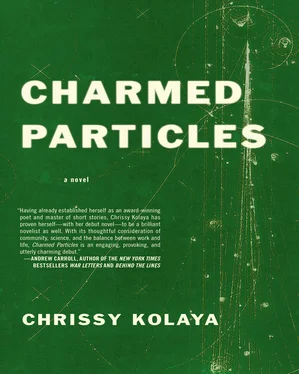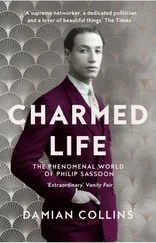Meena and Lily’s report, “Lady Florence Baker: The Journey from Slavery to Exploration,” weighed in at twenty pages, not including endnotes, bibliography, and the following index, which Meena had carefully prepared:
Abduction
childhood and, 1–3, 5
Africa, 5-11, 13, 17
Albert Nyanza. See Lake Albert
Arabic
fluency in, 10
Baker, Sir Samuel White, 3, 4–9, 11, 13–17, 19
books by, 15, 17
knighthood of, 16
Blue Nile
origin of, 9-10
discovery of, 8
Bucharest, 3
Camels
bargaining for, 5
riding, 5-9
Cannibalism, 11, 15
Egypt
expedition to, 7-10
Gondokoro, 9-10
Harem
women in, 2
Florence’s experience in, 1-3
Samuel’s views on, 18
Homesickness, 5
Hungarian Revolution, 1-2
Ivory, 8
Khartoum
return from, 15
Lake Albert
discovery of, 9
Lake Edward, 7
Lake Victoria, 7
Nile River
map of, 11
Ottoman Empire, 2
Poison arrows, 9, 12
Porters
natives used as, 9-11
Royal Geographical Society, 17
Salt, 6, 9, 15
Singh, Maharaja Duleep, 2
Sudan, 16-18
Starvation and rumored death, 13
Victoria, Queen
and society, 18
and jubilee, 17-18
Vidin, 1, 3
White Nile
characteristics of, 4, 9
source of, 11-12
expedition to, 9-12
This Lily and Meena presented to the blank stares and confusion of their classmates and teacher.
CHAPTER 9. Everything of Consequence for the Fate of the Universe
It was particle physics…that reigned supreme during that first dazzling microsecond [after the Big Bang], when virtually everything of consequence for the fate of the universe took place.
— To THE HEART OF MATTER: THE SUPERCONDUCTING SUPER COLLIDER, 1987
THE MEN OF THE NEIGHBORHOOD LEFT FOR WORK EACH MORNING dressed in sweaters and polo shirts, but Abhijat emerged each morning in a suit, his ensemble varying only in his choice of tie, a habit since his university years. It was a practice often mistaken for sartorial particularity, but in reality, the habit of the suit, its reliable, unwavering sameness, was comforting to Abhijat. He wore it almost like a uniform, and it was when he donned this uniform and prepared to leave for the Lab that he felt most at ease, knowing that he was headed toward the place where he felt most at home in the world.
Evenings, when he returned to Eagle’s Crest, he joined the great parade of husbands returning home, greeting one another with a raised hand or a nod as they made their way into the neighborhood and toward their homes through the maze of the subdivision’s circles, drives, and cul-de-sacs.
Each night, Abhijat parked the car in the garage and walked down the driveway to the mailbox to collect the day’s mail. Frequently, he found himself performing this ritual at the precise moment Carol’s husband, Bill, was doing so as well, and here they exchanged the kind of awkward greeting that passes between men who have little in common and know it, their conversations inevitably stilted and perplexing on both ends.
Abhijat felt most comfortable conversing with his colleagues, and he looked forward each morning to his arrival at the Lab. Unlike his neighbors and, he imagined, most Americans, Abhijat did not look forward to the weekends, for they were a time of forced exile (at Sarala’s suggestion) from the Lab. If he must work on the weekends, she had asked, couldn’t he at least do so from his study at home? Abhijat had agreed to this compromise, but it was time he did not relish because, as he worked, he was acutely aware that just outside his window, the other husbands of the neighborhood were at work in their yards and garages, on home improvement projects, playing catch in the yard with their children. And it was then that he felt so keenly different. So other.
The window of his study looked out over Bill and Carol’s garage, where Bill kept his antique sports car (with the exception of summer weekends, when he wheeled it out into the driveway to wax and polish it as gently as if he were bathing an infant). Each time Abhijat looked up from his desk, he saw Bill at work on the car or endlessly puttering in the yard. What, Abhijat wondered, did he find to do out there?
Abhijat had taken to working during the weekends behind a closed door, blinds twisted tightly shut against the reminder of this parallel world to which he did not belong.

Sarala had come to realize that, with the exception of Meena, Carol was the first friend she’d had in years. She had, of course, been friendly with Lily’s mother for as long as the girls had been friends, exchanging pleasantries as they dropped the girls off and picked them up at one house or the other. But Carol was the first friend who felt like she belonged to Sarala, a friend by choice rather than circumstance.
She spent her mornings now at Carol’s house sipping coffee while Carol filled orders and updated her clients’ product histories. “It helps me keep track of what they like and don’t like,” she explained.
Sarala sat beside her, leafing through a set of the flip charts Carol used to prepare for her Mary Kay parties — images of beautiful, sophisticated American women and the Mary Kay products that had helped them achieve that look. They were mostly white women, here and there a token black or Asian woman included. There were, as Sarala had come to expect, no women who looked like her. On the back of the photos were tips for the consultants: “Help your hostess feel special by gesturing to her as you say her name.”
“When does Abhijat come back from his conference?” Carol asked, looking up from the pink binder in which she was recording the minutia of her clients’ cosmetic preferences.
Abhijat had left earlier in the week for the International Workshop on Charm Physics, where he was delivering a paper on Hidden Charm. During his absence, Sarala had taken the opportunity to clean his study, a part of the house she rarely ventured into, being so infrequently invited. As she made her way into the room, she could sense the disturbance she made in the air, in the dust that coated the bookshelves and the spaces on his desk not covered in paper. Armed with one of Meena’s old cloth diapers and a bottle of Pledge, she had set about cleaning what she could without disarranging anything. Here and there she found triangles of desktop peeking out from among the lined white paper on which he had scribbled equations, and these she approached gingerly, with a fingertip, loath to move something out of place that might someday explain this enormous and astonishing world in which they lived.
As she worked, she found herself recalling with perfect clarity, much to her own surprise, something she’d read in one of her schoolbooks years ago: “A well-ordered home helps to make well-ordered men.”
What would Abhijat be like, she wondered, without his position at the Lab, without all of this. She looked out over his desktop. On top of the piles of paper that covered the desk sat a yellow legal pad covered with Abhijat’s neat, bold handwriting:
HOW MANY QUARK SPECIES ARE THERE?
HOW DO THE QUARKS BEHAVE WITH HADRONIC MATTER?
WHAT IS THE NATURE OF THE WEAK NEUTRAL CURRENT?
As she cleaned, she was surprised and a little sad to realize that his absence that week had hardly registered for her, nor, it seemed, for Meena. It was as though they had both come to think of Abhijat as a person who existed only in the mind rather than in their shared physical space.
Even the things he studied weren’t really present in the physical sense, she thought. Their very existence was hypothetical. He and the other theorists were predicting that these tiny parts of the world existed. But ultimately, who knew?
Читать дальше













